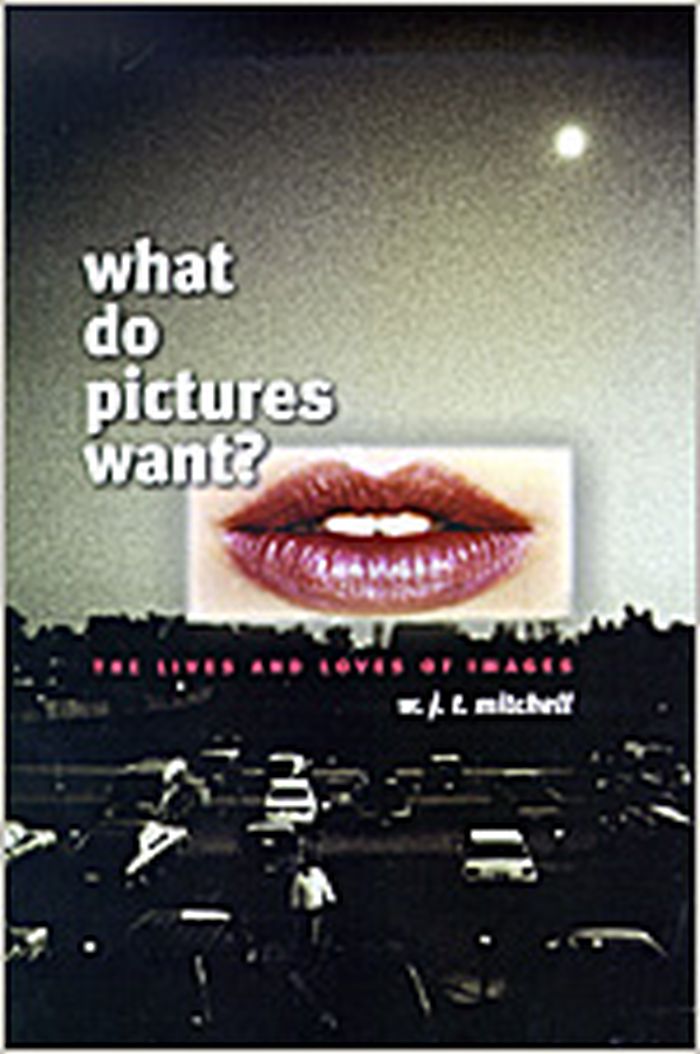$43.95
(disponible sur commande)
Résumé:
Why do we have such extraordinarily powerful responses toward the images and pictures we see in everyday life? Why do we behave as if pictures were alive, possessing the power to influence us, to demand things from us, to persuade us, seduce us, or even lead us astray? According to W. J. T. Mitchell, we need to reckon with images not just as inert objects that convey(...)
What do pictures want? : the lives and loves of images
Actions:
Prix:
$43.95
(disponible sur commande)
Résumé:
Why do we have such extraordinarily powerful responses toward the images and pictures we see in everyday life? Why do we behave as if pictures were alive, possessing the power to influence us, to demand things from us, to persuade us, seduce us, or even lead us astray? According to W. J. T. Mitchell, we need to reckon with images not just as inert objects that convey meaning but as animated beings with desires, needs, appetites, demands, and drives of their own. "What Do Pictures Want?" explores this idea and highlights Mitchell's innovative and profoundly influential thinking on picture theory and the lives and loves of images. Ranging across the visual arts, literature, and mass media, Mitchell applies characteristically brilliant and wry analyses to Byzantine icons and cyberpunk films, racial stereotypes and public monuments, ancient idols and modern clones, offensive images and found objects, American photography and aboriginal painting. Opening new vistas in iconology and the emergent field of visual culture, he also considers the importance of Dolly the Sheep - who, as a clone, fulfills the ancient dream of creating a living image - and the destruction of the World Trade Center on 9/11, which, among other things, signifies a new and virulent form of iconoclasm. "What Do Pictures Want?" offers an immensely rich and suggestive account of the interplay between the visible and the readable. A work by one of our leading theorists of visual representation, it will be a touchstone for art historians, literary critics, anthropologists, and philosophers alike.
Théorie de l’architecture
Antony Gormley Blind light
$80.00
(disponible sur commande)
Résumé:
Over the past 25 years, Antony Gormley, perhaps Britain's best-known living sculptor, has revitalized the human image in sculpture. He won the 1994 Turner Prize and has had solo exhibitions at the Whitechapel, Tate, and Hayward galleries, White Cube and The British Museum, and internationally at the Corcoran Gallery, Documenta and the Venice Biennale. His radical(...)
juin 2007, London
Antony Gormley Blind light
Actions:
Prix:
$80.00
(disponible sur commande)
Résumé:
Over the past 25 years, Antony Gormley, perhaps Britain's best-known living sculptor, has revitalized the human image in sculpture. He won the 1994 Turner Prize and has had solo exhibitions at the Whitechapel, Tate, and Hayward galleries, White Cube and The British Museum, and internationally at the Corcoran Gallery, Documenta and the Venice Biennale. His radical investigations of the body as a place of memory and transformation use his own corpus as subject, tool and material. Conflating figure and ground, inside and outside, the physical and the psychological, Gormley explores complex relationships between the city, its architecture and its people. This richly illustrated catalogue is filled with new, never-before-seen sculptural works--a series of figures in light-infused webs of steel, and the monumental steel-block "Space Station," 20 feet high. Photographer Gautier Deblonde also chronicles a major new public project, "Event Horizon," which sites some 30 sculptures on buildings across central London, dramatically altering the city skyline. An in-depth interview with Gormley explores the development of his new work, as well as his relationship to the artists who have inspired him and to his contemporaries in the field of figurative sculpture.

